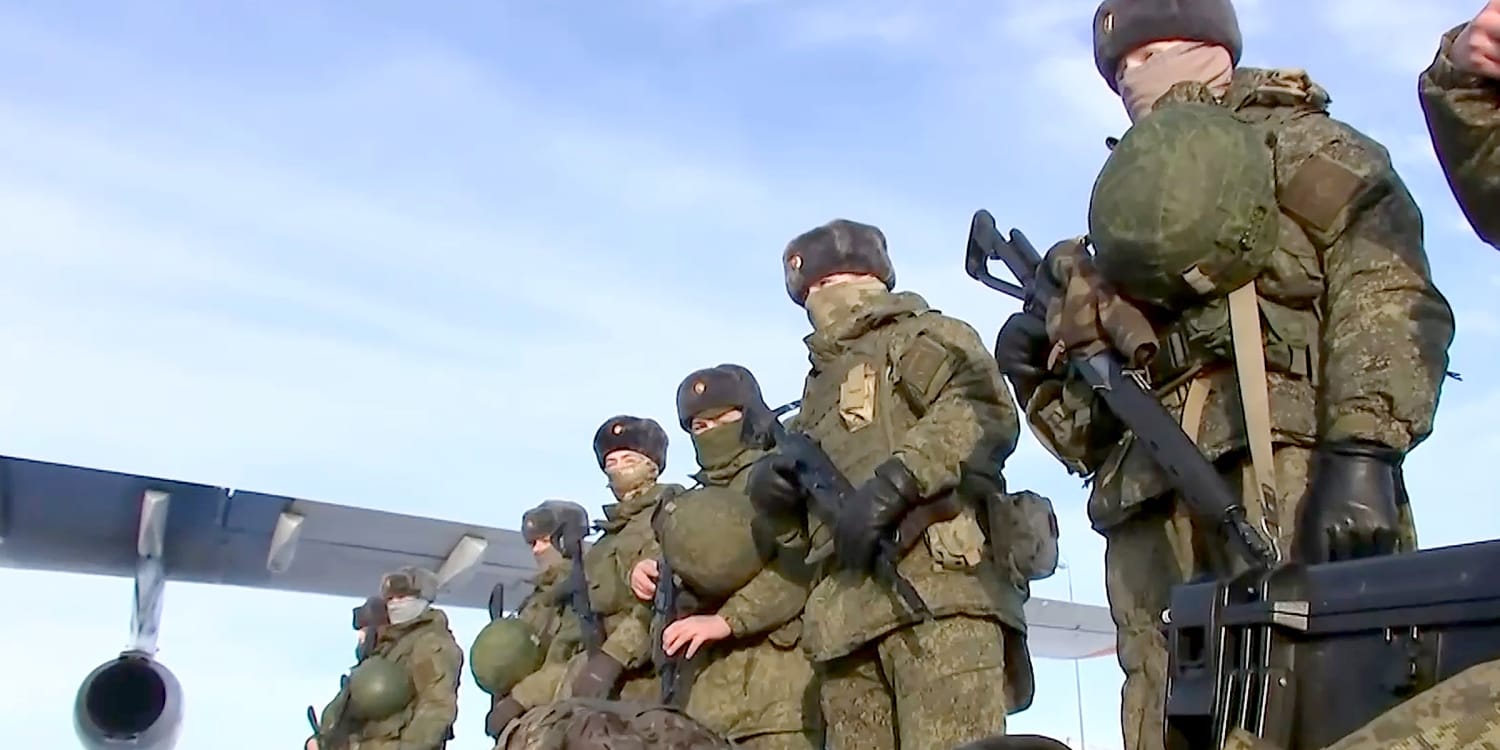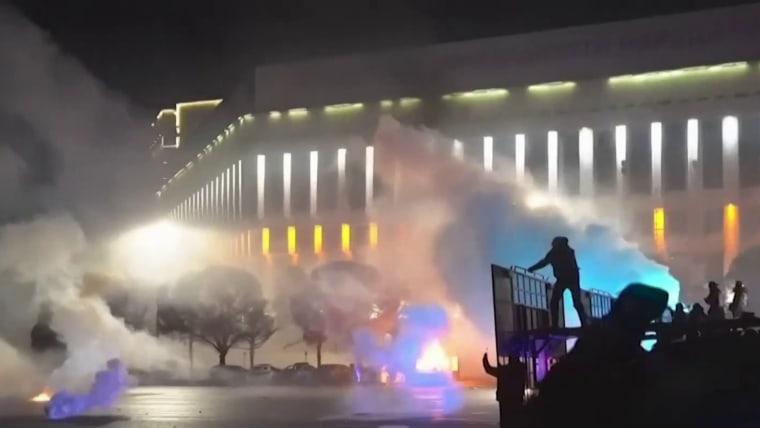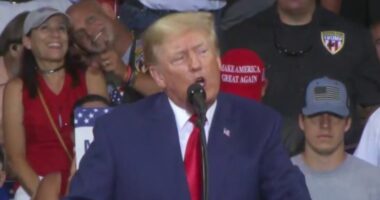Secretary of State Antony Blinken might have had good historical backup for the swipe he took Friday at Moscow over its intervention in Kazakhstan — but the taunt was unwise given that the Central Asian country most Americans have only heard of in the “Borat” movies isn’t the only former Soviet state currently concerned about an influx of Russian troops.
Fortunately, Blinken’s recent comments weren’t typical of the Biden administration’s careful handling of Ukraine, in which it seeks to offer Russia reasons to back down.
After all, on Monday, Moscow and Washington’s elite diplomats met in Geneva in a preliminary bid to resolve a crisis tied to a massive buildup of Russian ground forces on Ukraine’s border that may presage a major invasion of the key European country on Russia’s western border.
Russian President Vladimir Putin has already warned he will take “retaliatory military-technical measures” if NATO doesn’t agree to his sweeping demands to permanently close off the possibility of assistance or NATO membership to Ukraine and withdraw forces from Eastern Europe. The Biden administration is walking a careful line in trying to make a deal with Russia to mutually roll back its troops while not jeopardizing core American and European interests.
The difficult balancing act was made a bit more perilous, though, after Blinken impoliticly weighed in on the 2,500 troops Russia dispatched in response to a request for support from the autocratic government of Kazakhstan, which was wracked by violent protests last week over a 100 percent increase in the price of gas that left at least 164 dead.
It seemed the secretary of state couldn’t help taking a swipe in response to the situation when asked about it at a press conference last week: “I think one lesson in recent history is that once Russians are in your house, it’s sometimes very difficult to get them to leave.”
To be fair, Blinken was referring to a real historical phenomenon: Dating back to the 1990s, Russia has used “peacekeeping” troops and “volunteers” to more or less carve out pro-Russian enclaves in former Soviet states including Moldova and Georgia, essentially annexing chunks of these states’ territories.
However, that simply doesn’t describe the Russian intervention in Kazakhstan, which was requested by the Kazakh government in response to the violent riots over rising gas prices that have hammered poorer Kazakhs. Indeed, the Russian troops were requested under the Collective Security Treaty Organization that binds the countries together.
The Russian troops, meanwhile, seem likely to see little or no combat, and instead primarily serve as a confidence-building measure to stiffen the backs of Kazakhstan’s security forces. The president has already announced they’ll be pulling out soon. True, the episode will likely further cement Moscow’s deeply entrenched influence over the region and its autocrats; but it’s not an invasion, nor is Russia crushing a reform movement like the Prague Spring.
Putin deserves all the criticism in the world for the thuggish assassinations, political repression and invasions of neighboring states undertaken at his direction. But by throwing shade at a relatively defensible act, Blinken risks needlessly antagonizing Moscow amid key negotiations and reinforcing Moscow’s paranoia that Washington is out to destabilize Russia no matter what it does.
Blinken’s words may also be twisted to nurture the conspiracy theories frequently propagated by Moscow that popular dissent against Central Asian despots is inevitably an international (usually CIA) plot for some sort of “color revolution” — referring to uprisings against pro-Russian rulers in Georgia and Ukraine that Moscow sees as foreign-instigated, rather than reflecting authentic displeasure with the regime.
Above all, Washington is in no position to do anything about the troubles in Kazakhstan. Americans are naturally sympathetic to people who stand up to autocrats, like those in Kazakhstan are doing, but the U.S. ultimately has little leverage in Central Asia. As illustrated by last year’s withdrawal from Afghanistan, long preceded by base closures in Kyrgyzstan and Uzbekistan, the U.S. simply was never going to remain engaged in Central Asia. Russia will by dint of sheer geography.
The task before President Joe Biden now is to focus first on defending NATO countries from Moscow’s military coercion, and second to prevent further aggression against Ukraine if possible. Fortunately, Blinken’s recent comments weren’t typical of the Biden administration’s careful handling of Ukraine, in which it seeks to offer Russia reasons to back down from military action without conceding to its unreasonable demands.
We can’t know for sure under what circumstances Putin would decide to use military force against Ukraine. In fact, military action may already be a done deal, with his diplomatic demands a mere fig leaf to claim he attempted a diplomatic approach before sending in the troops; on the other hand, the buildup may be an elaborate and highly expensive bluff. More than a few commentators confidently proclaim both stances, which should tell you how murky the situation is.
But it remains possible that Putin’s decision to go to war hinges on negotiations with Washington — and there it’s vital the U.S. reject Moscow’s outrageous demands while making a credible counteroffer in the hopes of preventing a war with horrible, long-lasting repercussions.
Per reports from Monday’s meeting, Biden’s offers involve prudent trade-offs. For example, he may agree to restrictions on offensive missiles in Europe that Putin fears could strike Moscow with short notice — but ask for Russia to withdraw its nuclear-capable missiles in the Kaliningrad region that pose that same threat to Berlin and Warsaw.
Biden has also floated moderate limitations to the maximum number of U.S. troops that rotate through East European NATO states. That’s a real concession – as NATO forces there are already too few to stop a Russian invasion, instead serving as a sort of human tripwire for Russian aggression. Any agreed-to troop restrictions would have to be carefully crafted to result in proportionate reductions of Russian military presence in the region, too.
Lastly, Biden is looking at reducing the frequency of patrols and foreign military exercises, again with limits on Russia’s own massive military exercises and aggressive activities.
It’s entirely possible that Moscow’s bottom line is irreconcilable with NATO security, or that its diplomatic demands were not made in good faith. But until we know for sure, Washington needs to explore win-win agreements that can reduce the heat — and avoid taking unnecessary cheap shots at a time when sensitive national egos could pull the trigger on a major war in Europe.
Source: | This article originally belongs to Nbcnews.com











